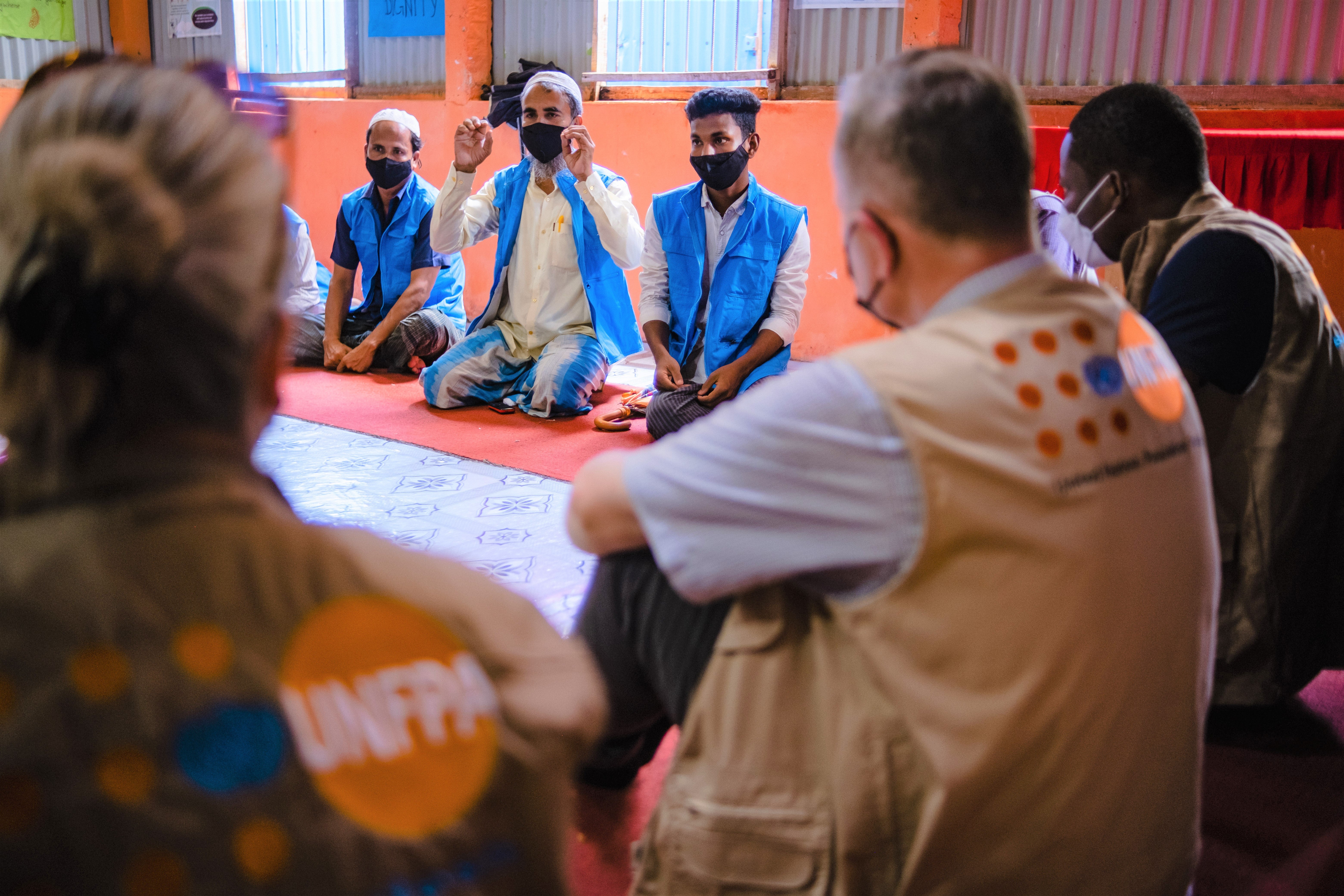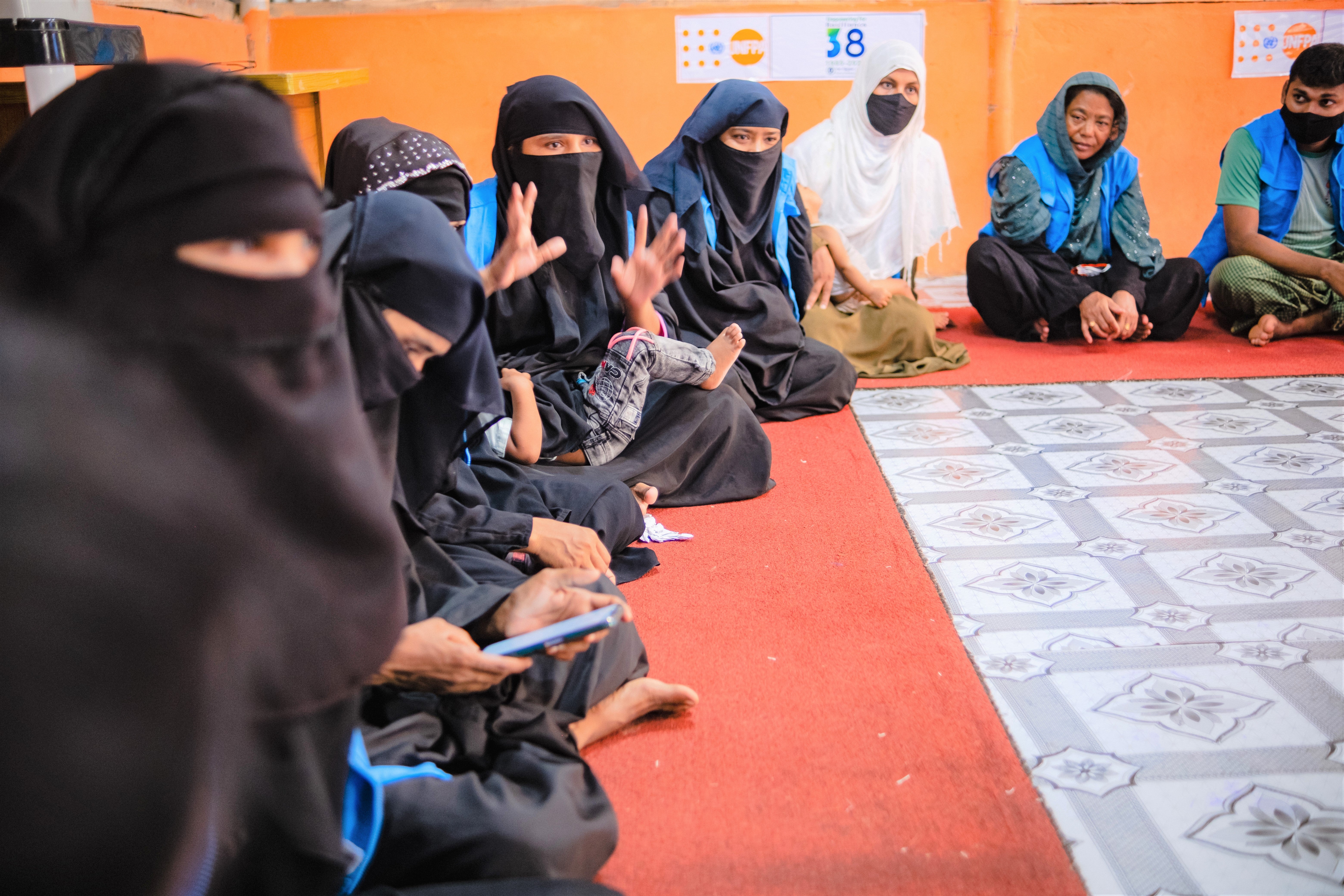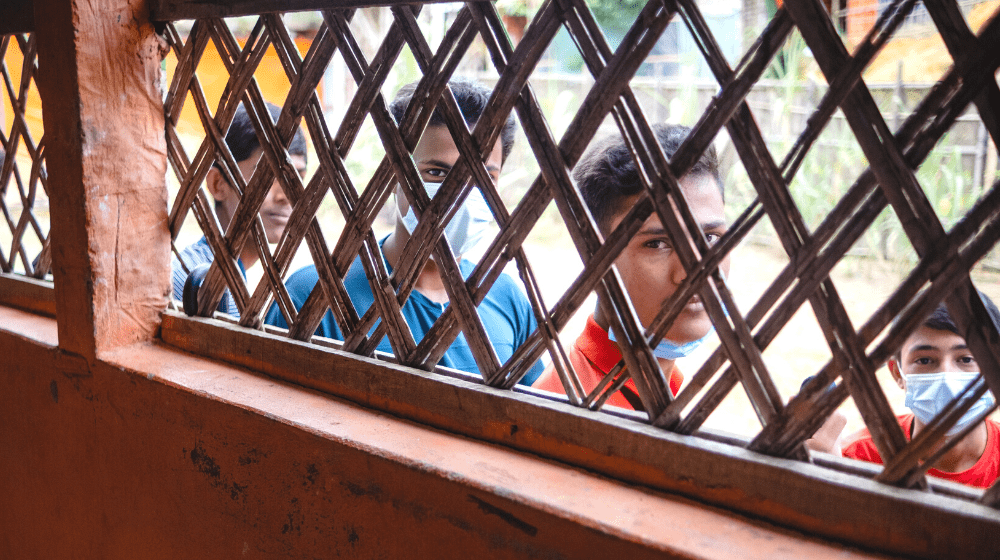Reflections by UNFPA Regional Director, Björn Andersson following his recent visit to the Rohingya refugee camps in Cox's Bazar, Bangladesh
World Humanitarian Day was recently observed under the theme – ‘It Takes A Village’ - underscoring the complex realities of humanitarian crises around the world, and the need for multisectoral and innovative partnerships across all layers of society, as well as the humanitarian community.
Five years into the Rohingya people’s mass exodus to Bangladesh, caused by escalating violence and decades of marginalization, those who have sought refuge and normalcy continue to face great challenges, although their situation is more stable now.
Last week, I traveled to Cox’s Bazar, currently the world’s largest refugee camp which houses close to one million Rohingya refugees.
I met with Rohingya people, the host communities, the frontline workers including health care professionals and service providers, and UNFPA’s partners, both governmental and civil society organizations. From these encounters and the good discussions I had with the community representatives and partners, I could witness how over the course of the last five years, everyone has come together to respond to the vast needs, including the refugees themselves who have endured immense trauma across generations.

From the onset of the crisis in 2017, UNFPA has established and gradually expanded programmes to respond to gender-based violence, provide sexual and reproductive health services, and empower and engage young people.
Today, there are 236 midwives who have received mentorship support and are putting those acquired skills into practice at both governmental and non-governmental health facilities. Women and girls are receiving lifesaving sexual and reproductive health services through 22 health facilities, 39 women-friendly spaces and 5 multi-purpose women centres which serve both Rohingya refugees and host communities.
I witnessed during my visit how effective referral between sexual and reproductive health, and gender-based violence response services helped to ensure that the needs of women and girls are met. At the UNFPA-supported Hope Field Hospital, I saw how midwives strive to ensure every mother delivers safely, despite complications that require urgent medical attention.
With our partners, UNFPA is also strengthening the monitoring and surveillance of maternal mortality to ensure that the risks faced by women during pregnancy or childbirth are identified and addressed through joint approaches among the various humanitarian actors.
During my visit, I observed activities at a Women Led Community Centre, one of 10 such centres supported by UNFPA and our donors, and run by partners in Cox’s Bazar. The Centre supports women and girls through skills development and economic empowerment and is one important example of how various stakeholders are coming together to combat gender-based violence, advance gender equality and empower women and girls in the Rohingya camps and surrounding host communities.
At this centre, I met with men and women working together, as well as adolescent boys engaged in activities to improve relationships and prevent violence. I was impressed with their commitment, and with the pride they take in the contributions they are making for their community.
One young person, Anowar, who is part of a UNFPA-supported community engagement initiative, shared with us saying: “My uncle used to hit his wife, and we thought that was normal. I learnt about gender-based violence after attending the Champions of Change session, and I advised my father to talk to my uncle about it”.

Through active engagement of community members and religious leaders, UNFPA and partners are striving to end violence against women and girls and to transform power imbalances between women and men.
“Child marriage was never considered a form of abuse against women in our community. We now better understand the consequences of child marriage on families and individuals after attending the sessions. Now I campaign in my community to end child marriage,” said a female activist who is part of the SASA!Together community engagement initiative.

I was also keen to observe UNFPA’s activities in the local communities which host the camps. I visited a police station which piloted a dedicated women’s help desk for survivors of gender-based violence. The pilot’s success has led to the expansion of this initiative across police stations in all districts in Bangladesh.
I am in awe of the resilience of the Rohingya people who, despite all these challenges, are striving to make life better for themselves and their family members. They wish above all to return home, but current circumstances do not yet allow for them to do so safely. I am also heartened by the great efforts made by the host communities, local and national authorities, and civil society organizations.
But how long can the refugees’ and the host communities’ resilience last as the crisis further protracts?
As the ongoing crisis reaches its five-year mark, the international community must renew its commitment to supporting the Rohingya people as well as the authorities in Bangladesh and the host communities.
We need to ensure that the world’s attention does not shift away from the protracted crisis. We need to make sure that no girl or woman is left behind.


